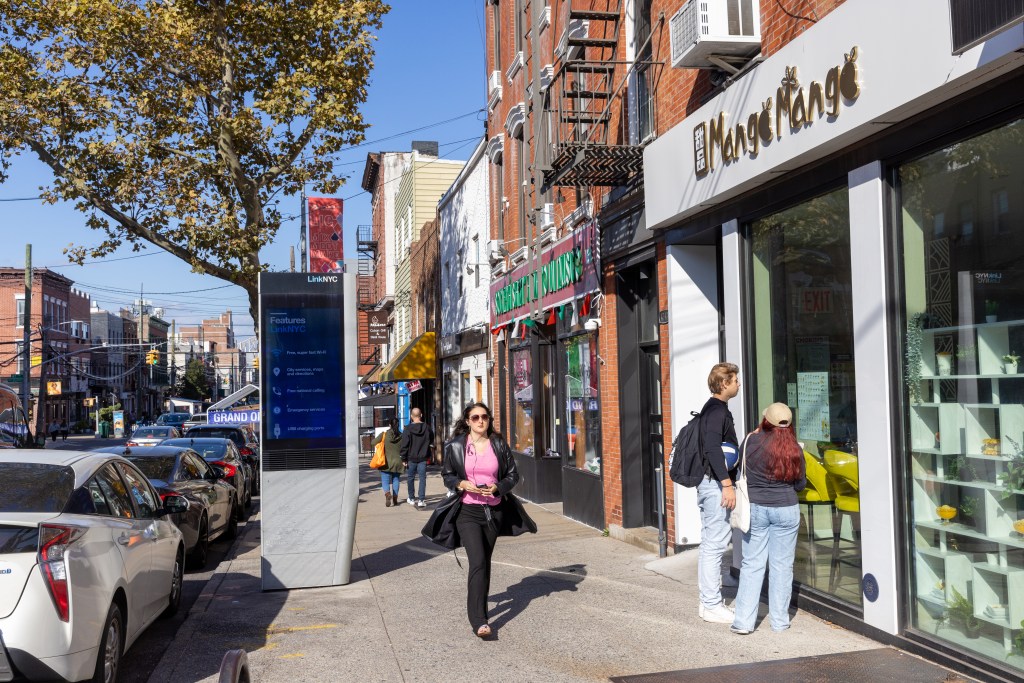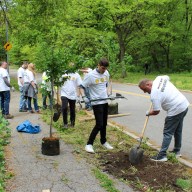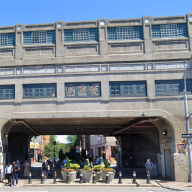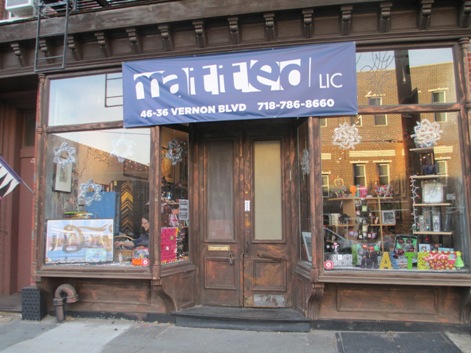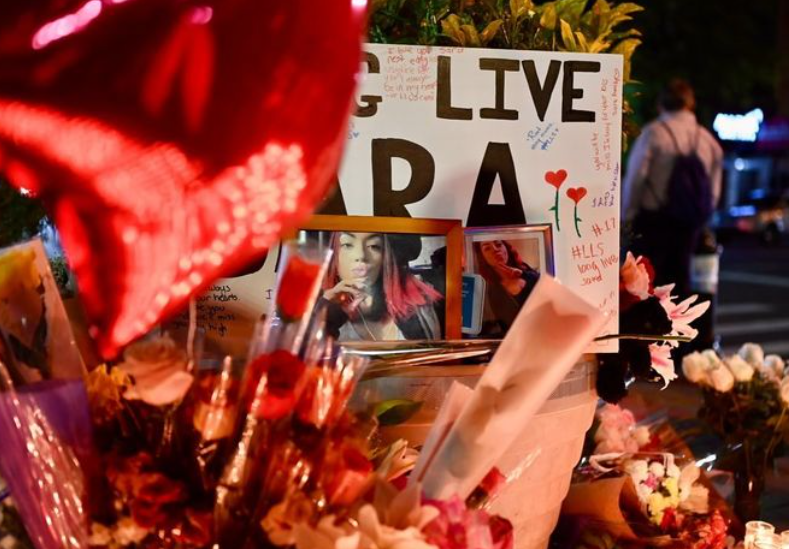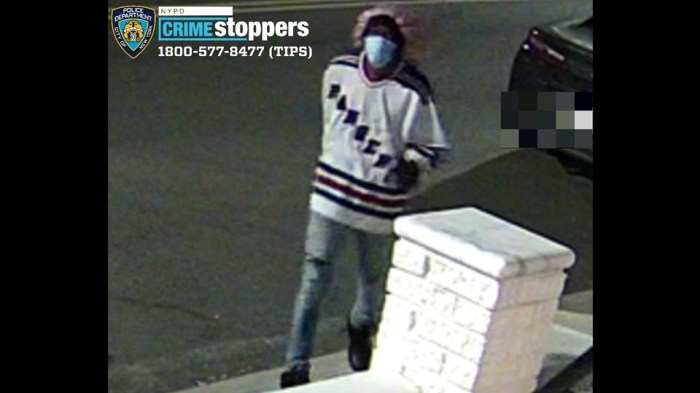With this week’s high heat and humidity, Mayor Rudy Giuliani offered Queens residents advice on how to "Beat the Heat."
• Avoid strenuous activity and direct exposure to the sun, particularly during peak hours of 11 a.m. to 4 p.m.
• Drink plenty of fluids. Water and diluted juices are your best choices. Stay away from carbonated drinks, as well as drinks containing caffeine. Those on fluid-restricted diets or taking diuretics should consult their physician.
• Avoid alcohol. Alcohol can actually harm one’s ability to cool oneself.
• Salt tablets should be avoided. Salty food intake can be increased if necessary.
• Wear lightweight, light colored, loose-fitting clothing.
• Keep rooms well-ventilated with air conditioners and fans. Do not keep your windows closed if you don’t have a fan or air conditioning. Any breeze is a good breeze!
• Cool down with repeated cool baths or showers, even if there is no electrical power.
• Participate in activities that will keep you cool, such as going to the movies, the mall, the beach, or a pool. Pools in all five boroughs will be open until 8 p.m. Also, the sprinklers (spray showers) in the parks will be functioning until 8 p.m. as well.
MEDICAL EMERGENCIES
In addition to being uncomfortable, a heat wave can cause a wide variety of medical emergencies. In order to further safeguard your health and the health of loved ones and neighbors, the Dept. of Health offers the following tips:
• Never leave children or pets in an enclosed automobile.
• Get immediate help if a person appears to be in trouble because of the heat.
Excessive heat is the cause of two dangerous health conditions that require emergency medical attention!
Heat Stroke is the most serious heat related condition. And it requires a doctor’s immediate attention and treatment. Symptoms of heat stroke can vary but a person suffering from heat stroke experiences a rise in body temperature to 103 degrees or greater (though the person may feel chilled), a rapid heartbeat and pulse but little to no sweating. Other symptoms include red, hot and dry skin, throbbing headaches, dizziness, nausea, confusion and unconsciousness.
Heat Exhaustion occurs before heat stroke and is characterized by sudden weakness, dizziness, nausea, headache, profuse sweating and a feeling of faintness.
If any of these symptoms occur, then the individual should relocate to a cool, preferably air conditioned environment, and relax. Cool soaks should be applied to neck, face and arms, and the individual should be encouraged to drink plenty of water or a beverage that contains electrolytes (such as a sports drink). Under no circumstances should an unconscious or stuporous person be given anything to drink by mouth because of the risk of choking.
PROTECTION FOR CITIZENS WHO ARE PARTICULARLY VULERNABLE TO HEAT
A small but crucial gesture can ensure that we have a safe and health summer. Get to know your neighbors, and contact neighbors and relatives — in person or by phone — at least twice a day.
Pay special attention to the elderly, the very young, and anyone with a pre-existing medical condition. The Dept. for the Aging is asking New Yorkers to check up on old neighbors who may be isolated from friends and family. "Many older New Yorkers live alone and could suffer unnecessarily in the heat because they’re isolated from friends and family," said Dept. for Aging Commissioner Herbert W. Stupp. "Checking up on the well-being of your elderly neighbors can help to make their summer season a safe and healthy one." Seniors should keep their homes well ventilated, and seek immediate help if they feel signals of heat stress.
IMPROPER FIRE HYDRANT USE
While it may be tempting for citizens to open a fire hydrant, the Fire Dept. warns all New Yorkers about the dangers of improperly used fire hydrants and urges the use of "spray caps."
According to Fire Commissioner Thomas Von Essen, "Improper use of fire hydrants is dangerous to both citizens and firefighters. An open hydrant wastes 1,000 gallons per minute, overtaxes the sewer system, and causes flooding of City streets. It also places the lives of citizens and firefighters in jeopardy by lowering water pressure to dangerous levels, hampering the ability to get water on a fire quickly and safely."
Properly used "spray caps" reduce hydrant output to a safe 25 gallons per minute while still providing relief from the heat. Spray caps and hyrdrant wrenches are available at any New York City Firehouse.
ENERGY-SAVING TIPS
• During periods of intense electric usage such as on hot, humid days like today, it is important to conserve energy as much as possible to avoid brownouts and other electrical disruptions.
Air Conditioners (general)
• Set the control no lower than 78 degrees F. (A 75 F setting uses 18 percent more electricity and a 72 F setting uses 39 percent more electricity). This setting allows for sufficient cooling while still conserving electric power.
• Use an air conditioner only when home. If you want to cool your room down before you arrive home, use a timer to have it come on no more than one half hour before you arrive.
If your neighborhood is experiencing a serious electrical distribution problem Con Ed or LIPA may ask you to:
• turn off all non-essential appliances.
• Wait until the problems are resolved before using your washer/dryer.
• turn off unneeded air conditioners If necessary try to limit the use of air conditioning to one room.
• Use fans when possible, especially in late afternoon when demand is highest
For more information to protect yourself against the heat call a (800) 4-COOL NY. The heat relief hotline telephone for the deaf or hard of hearing is 1 (800) 705-7360.









